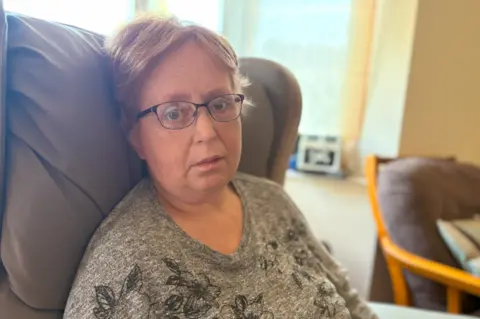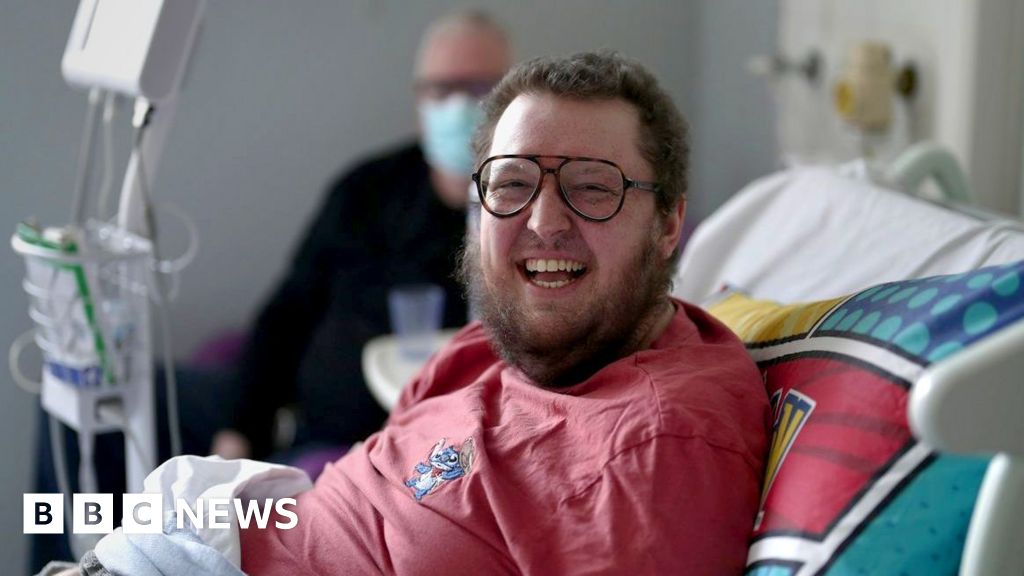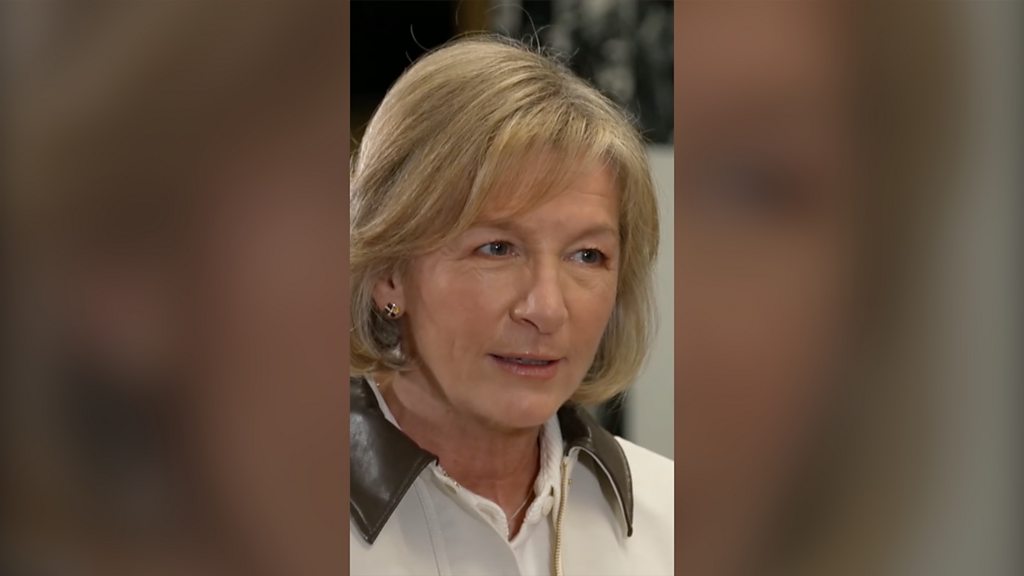 BBC
BBCA brain cancer patient who says he was prescribed chemotherapy tablets for 16 years, even though NHS guidelines say they should only be taken for six months, has said he feels his youth was stolen from him.
Jonathan Jones was diagnosed with anaplastic astrocytoma in 2007 when he was 17 and took temozolomide tablets until November 2023, when he was 33.
Since he has raised his case with lawyers, more than 30 other brain cancer patients at University Hospitals Coventry and Warwickshire (UHCW) have raised similar concerns.
The NHS trust said it was committed to providing the safest possible care and had commissioned an independent inquiry.
Prof Ian Brown, the oncologist who oversaw Mr Jones’s care, is being investigated by the General Medical Council (GMC). The BBC has attempted to contact the retired professor several times.
Mr Jones, now aged 36, said: “I lost my freedom, I couldn’t do anything at the time. I had 16, 17 years taken away from me.”
The landscape gardener from Lichfield, Staffordshire, said he had had dental problems, joint pain and anxiety issues since being diagnosed.
‘If you don’t carry on, you’ll die’
Talking about the impact on his life, he said: “I was off [work] every single month for seven days and I couldn’t get employed, so financially that was a problem.
“The pain I suffered at home… I’d stay in bed, I’d have panic attacks. Sickness, tiredness. I didn’t really go out much.
“It caused a lot of stress for my family as well.”
Mr Jones was told he would need to stay on his tablets to stay alive, and when he questioned the treatment, he said the reply was: “Do you want to die? If you don’t carry on taking the chemo, you’ll die.”
Guidelines say temozolomide should be taken post radiotherapy for a maximum of six cycles. This is usually over six months.
There are a wide range of side effects associated with temozolomide including muscle weakness, memory issues and, in rare cases, secondary cancers and liver damage.
Another patient, Samantha Smith from Bromsgrove, Worcestershire, says she took temozolomide for six-and-a-half years while under the direction of Prof Brown at UHCW.
She said she had suffered from teeth and gum decay, mobility issues and chronic fatigue.
Ms Smith said: “You never expect anybody to turn around and say to you ‘by the way, you’ve had too much’.
“I get a lot more lethargic now. I can’t move as much as I used to… it’s difficult now to walk downstairs on my own. I fall a lot.”

Law firm Brabners says it has obtained data, using Freedom of Information requests that shows UHCW spent more than £3.6m on temozolomide between 2009 and 2024 – more than 10 times that of comparable NHS hospitals.
In a statement, UHCW said: “The Trust is committed to providing the safest possible care.
“We have comprehensively reviewed and spoken to all individuals who were receiving temozolomide (TMZ) treatment at the end of 2023 to ensure appropriate support and care plans are in place.”
It added: “A high-grade brain tumour is an extremely complex condition and all modes of treatment – surgery, chemotherapy and radiotherapy – carry the risk of complications and side effects.
“National Institute for Health and Care Excellence guidelines recognise that clinicians can exercise professional judgement appropriate to individual circumstances when offering treatment to patients.
“We have commissioned the Royal College of Physicians to conduct an independent review of a representative cohort of patients who received greater than 12 cycles of adjuvant TMZ between 2017 and 2023.
“As this process is ongoing, it would be inappropriate to comment further at this stage.”
A statement from the GMC said: “Dr Ian Brown is currently registered with a licence to practise but with interim conditions on his registration pending the conclusion of a GMC investigation.
“The interim restrictions were first imposed on Dr Brown’s practice on 23 August 2024.”








